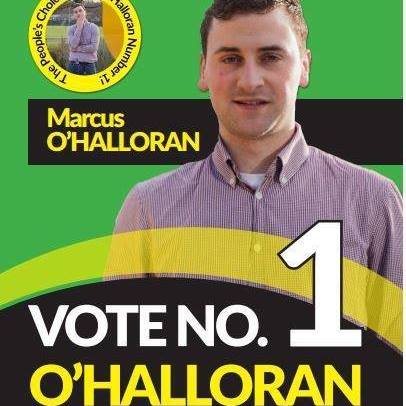Fourth Year Agricultural Science student Marcus O’Halloran is optimistic about the influence that someone coming in from outside can have on UCDSU: “I think my biggest asset is that I haven’t been in the Union like all the other candidates. I can see things from a completely fresh approach”.
The two-time Auditor of the Agricultural Science society feels that he can bring a community spirit to UCD that has been lacking: “I saw this year with AgSoc that we managed to do some amazing charity work and it’s had a great knock on effect for the community and the Ag building. That’s something I’d like to bring to the college scale instead of a school scale.”
One unique aspect to O’Halloran’s campaign is that he is the only Presidential candidate whose manifesto commits to fight fee increases. When asked to comment on the fact that this was absent from his opponents’ manifestos, pilule he told The College Tribune that “I think it’s a touchy subject and people don’t want to get into it because they’ll be asked too many questions. But it is on students’ lips every year before they go back to college, so I don’t see why it isn’t in all manifestos”.
One correction he feels he needs to make in his manifesto is that the promise to campaign for a 24 hour library “meant to say 24 hour work space”, and the he feels a 24 hour library wouldn’t be possible but a 24 work space should be. There was a proposal to have such a workspace in the original plans for the new student centre, something which O’Halloran has been investigating why it wasn’t implemented. “Students work on different body clocks and daytime study doesn’t suit all students, for some night time study is better. It wouldn’t be a major cost, all it really would be is another light turned on in a room”.
O’Halloran is also focused on bringing services back: “I know that the programme office in the Arts building is trying to convert a lot of its services to online. I feel like it is very unfair for students at 1pm in the day to just see shutters there when they need somebody to talk to. It’s far more beneficial for students to be speaking to somebody rather than speaking to a screen.” He admits however that he has not investigated how feasible this would be, and has also yet to look into the cost for the university.
O’Halloran believes the Union’s communications problem can be helped through lecture addresses. “Class reps should be open to lecture addressing every week, I think the sabbatical officers should be lecture addressing at least two to three times a week.” When asked how the sabbatical officers would be able to find time to do this, he argued that bringing back the Campaigns and Communications Officer will make this more possible, as sabbatical officers will have more free time since they won’t be dedicating time to organising campaigns. “I think the Union needs to be seen more on the ground, a union can’t just be seen when they’re needed, a union has to be there when they’re not needed. That’s where I stand, that everybody could see that the Union are always there for them”.
Diarmuid Burke & Rachel Carey

